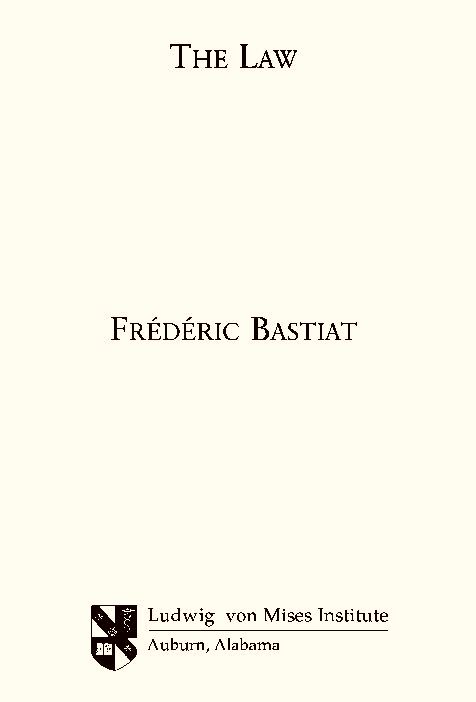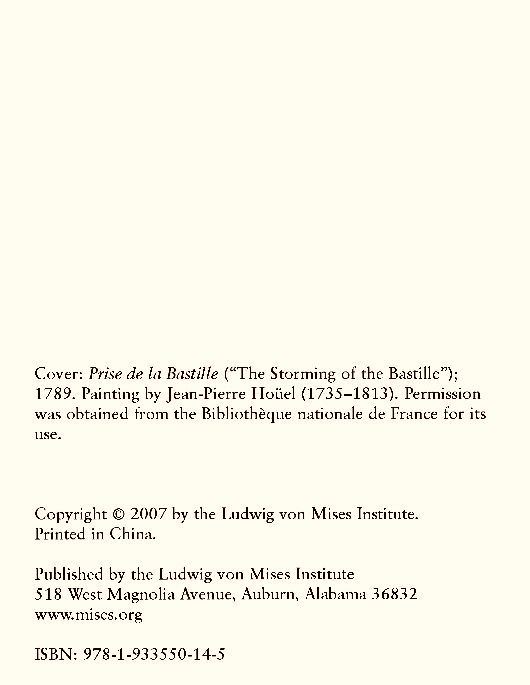THE LAW
By Frédéric Bastiat

Ludwig von Mises Institute Auburn, Alabama
Cover: Prise de la Bastille ("The Storming of the Bastille"); 1789.
Painting by Jean-Pierre Hoiiel (1735-1813).
Permission was obtained from the Bibliothèque nationale de France for its use.
Copyright © 2007 by the Ludwig von Mises Institute. Printed in China.
Published by the Ludwig von Mises Institute
518 West Magnolia Avenue, Auburn, Alabama 36832
ISBN: 978-1-933550-14-5



FOREWORD
THE LAW
FOOTNOTES:
INDEX
FOREWORD
Anyone building a personal library of liberty must include in it a copy of Frédéric Bastiat's classic essay, "The Law." First published in 1850 by the great French economist and journalist, it is as clear a statement as has ever been made of the original American ideal of government, as proclaimed in the Declaration of Independence, that the main purpose of any government is the protection of the lives, liberties, and property of its citizens.
Bastiat believed that all human beings possessed the God-given, natural rights of "individuality, liberty, property." "This is man," he wrote. These "three gifts from God precede all human legislation." But even in his time—writing in the late 1840s—Bastiat was alarmed over how the law had been "perverted" into an instrument of what he called legal plunder. Far from protecting individual rights, the law was increasingly used to deprive one group of citizens of those rights for the benefit of another group, and especially for the benefit of the state itself. He condemned the legal plunder of protectionist vi
tariffs, government subsidies of all kinds, progressive taxation, public schools, government "jobs" programs, minimum wage laws, welfare, usury laws, and more.
Bastiat's warnings of the dire effects of legal plunder are as relevant today as they were the day he first issued them. The system of legal plunder (which many now celebrate as "democracy") will erase from everyone's conscience, he wrote, the distinction between justice and injustice. The plundered classes will eventually figure out how to enter the political game and plunder their fellow man. Legislation will n